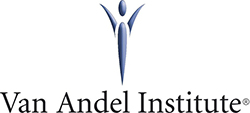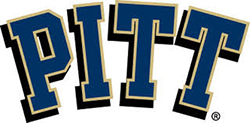 The U.S. Patent and Trademark Office recently issued U.S. Patent No. 8,632,983, which is entitled "Biomarkers for pancreatic cancer and diagnostic methods." The '983 patent, which is assigned to the Van Andel Research Institute and the University of Pittsburgh, contains claims to a method for differentiating pancreatic cancer from a benign pancreatic disease.
The U.S. Patent and Trademark Office recently issued U.S. Patent No. 8,632,983, which is entitled "Biomarkers for pancreatic cancer and diagnostic methods." The '983 patent, which is assigned to the Van Andel Research Institute and the University of Pittsburgh, contains claims to a method for differentiating pancreatic cancer from a benign pancreatic disease.
The invention provides a method for diagnosing pancreatic cancer; more specifically, a method for differentiating pancreatic cancer from a benign pancreatic disease in a patient having or suspected of having a pancreatic disease. The invention could be particularly helpful in the early diagnosis of pancreatic cancer. Pancreatic cancer is typically diagnosed at a more advanced stage, and treatment options are limited, leading to five year survival rates of less than 5%. The inventors indicate that a blood-based diagnostic test for pancreatic cancer would be especially valuable, potentially increasing survival rates and saving resources.
 The inventors used antibody arrays to measure the levels of a carbohydrate antigen, CA 19-9, on multiple proteins in 420 individual biological samples from patients with pancreatic adenocarcinoma or pancreatitis. It is known that the CA 19-9 antigen is elevated in serum from the majority of pancreatic cancer patients, but using CA19-9 in diagnostic tests is discouraged in the guidelines from the American Society of Clinical Oncology due to both false positive and false negative readings. Surprisingly, the inventors discovered that a subset of cancer patients showed elevations of the CA 19-9 antigen on the mucin proteins MUC1, MUC5AC, or MUC16. By combining measurements of total CA 19-9 with CA 19-9 on the MUC1, MUC5AC, or MUC16 proteins, the inventors determined that they could differentiate, with sensitivity and specificity, whether the sample was from a patient with pancreatic cancer or a patient with a benign pancreatic disease.
The inventors used antibody arrays to measure the levels of a carbohydrate antigen, CA 19-9, on multiple proteins in 420 individual biological samples from patients with pancreatic adenocarcinoma or pancreatitis. It is known that the CA 19-9 antigen is elevated in serum from the majority of pancreatic cancer patients, but using CA19-9 in diagnostic tests is discouraged in the guidelines from the American Society of Clinical Oncology due to both false positive and false negative readings. Surprisingly, the inventors discovered that a subset of cancer patients showed elevations of the CA 19-9 antigen on the mucin proteins MUC1, MUC5AC, or MUC16. By combining measurements of total CA 19-9 with CA 19-9 on the MUC1, MUC5AC, or MUC16 proteins, the inventors determined that they could differentiate, with sensitivity and specificity, whether the sample was from a patient with pancreatic cancer or a patient with a benign pancreatic disease.
The '983 patent has one independent claim which recites:
1. A method for differentiating pancreatic cancer from a benign pancreatic disease, comprising the steps:
obtaining a patient biological sample from a patient having or suspected of having a pancreatic disease;
assaying the patient biological sample (a) to detect a total level of CA 19-9 antigen in the patient biological sample and (b) to detect a glycan level in MUC16 in the patient biological sample;
comparing the total level of CA 19-9 antigen in the patient biological sample to a statistically validated threshold for total CA 19-9 antigen, which statistically validated threshold for total CA 19-9 antigen is based on a total level of CA 19-9 antigen in comparable control biological samples from patients having a benign pancreatic disease; and
comparing the glycan level in the MUC16 in the patient biological sample to a statistically validated threshold for the MUC16, which statistically validated threshold for the MUC16 is based on a glycan level in the MUC16 in comparable control biological samples from patients having a benign pancreatic disease;
wherein (a) a different level of total CA 19-9 antigen in the patient biological sample as compared to the statistically validated threshold for total CA 19-9 antigen and (b) a different level of glycan level in the MUC16 in the patient biological sample as compared to the statistically validated threshold for the MUC16 indicate that the patient has pancreatic cancer rather than a benign pancreatic disease.
A review of the file history of the '983 patent indicated that a rejection under 35 U.S.C. § 101 was not issued.